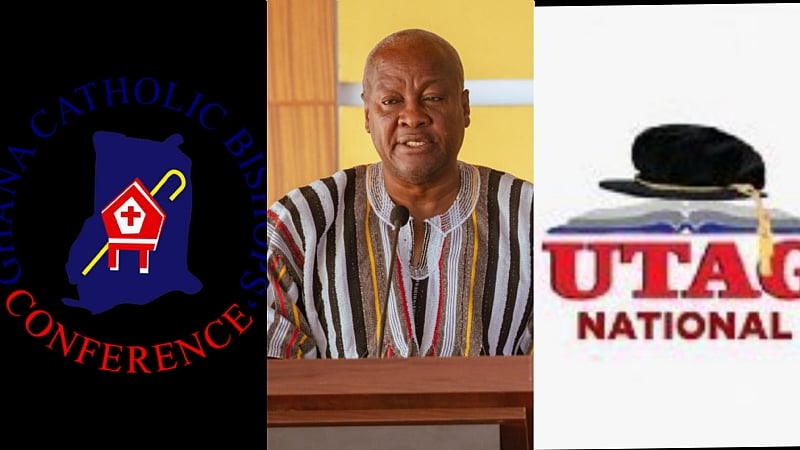The Gallant Cadres of the National Democratic Congress (NDC) have added their voices to the mounting chorus advocating for a state of emergency in Ghana’s mining regions to combat the escalating crisis of illegal mining, commonly known as “galamsey.” This call echoes similar pronouncements from influential bodies such as the Ghana Catholic Bishops’ Conference (GCBC) and the University Teachers Association of Ghana (UTAG), University of Ghana branch. The Cadres, while endorsing the urgency of the situation, also urge patience to allow the current NDC government adequate time to implement comprehensive, technically sound solutions.
The Cadres’ press release attributes the current crisis to the legacy of the preceding New Patriotic Party (NPP) government, which they accuse of eight years of ineffective policies and political interference that worsened the galamsey problem. While acknowledging that the current NDC administration hasn’t entirely eradicated illegal mining, they commend the government’s efforts thus far, citing successes like the seizure of excavators and other illegal mining equipment. They emphasize that the government is employing advanced technological solutions to address environmental damage caused by galamsey, including water pollution and land degradation. The Cadres frame the call for a state of emergency as a legitimate response to the protracted crisis, contrasting it with the inaction of the previous NPP administration.
Central to the Cadres’ argument is the concept of accountability. They call for all stakeholders, including traditional leaders, to be held responsible for their role in the galamsey crisis, regardless of political affiliations or social standing. They specifically commend prominent chiefs, such as the Asantehene and Dormaahene, for taking action against sub-chiefs involved in illegal mining. The statement lists prominent NPP figures, including former ministers and MPs, alleging their complicity in the galamsey crisis, accusing them of exploiting their positions for personal gain and contributing to the environmental devastation.
The NDC Cadres further argue that the NPP’s legislative actions, specifically L.I.2462, which allowed mining in forest reserves and water bodies, are directly responsible for the current predicament. They criticize civil society organizations for not demanding the removal of MPs implicated in galamsey activities, regardless of party affiliation. They also express concern about calls for a “shoot-to-kill” policy, which they interpret as advocating for extrajudicial killings. They suggest that focusing on prosecuting offenders through special public tribunals, as proposed by the Acting Chief Justice, is a more appropriate legal recourse.
Beyond immediate interventions, the Cadres highlight longer-term strategies being implemented by the government, including the establishment of GOLDBOD to regulate the export and sale of gold, thereby cutting out illicit intermediaries. They also commend initiatives such as the Blue River Guards and the Tree for Life project, aimed at environmental restoration and reclamation. Furthermore, they emphasize the importance of creating alternative livelihood opportunities through agribusiness projects to transition people away from illegal mining. The Cadres maintain that the military deployment to mining areas is a crucial step to flush out illegal miners and establish a permanent presence to prevent their return.
Finally, the Cadres assert that the government’s success hinges on tackling corruption and the illegal allocation of state-acquired lands. They call for all proceeds of galamsey and corruption to be confiscated by the state. Crucially, they advocate for maintaining the ban on the sale or lease of state-acquired lands and bungalows, arguing that such transactions fuel corruption, money laundering, and illegal mining. They demand transparency and accountability in all land transactions, urging the government to publish the status of all state-acquired lands and bungalows. The Cadres underscore the importance of adhering to the constitution and existing laws, particularly ACT 1036, which mandates the establishment of Stool Land Secretariats to ensure transparency and accountability in land dealings. They stress that this legal framework provides for severe penalties for those who violate land regulations, including high-ranking officials such as the President, Ministers, and Chiefs.














